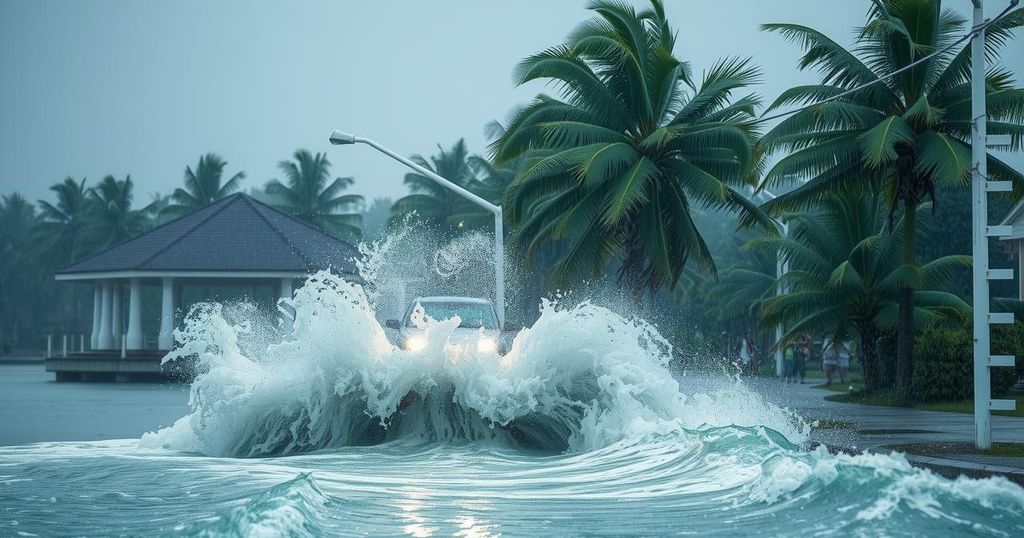Tropical Cyclone Chido Causes Extensive Damage in Mozambique

Tropical Cyclone Chido made landfall in Mozambique as a category 4 cyclone, causing destructive winds of 260 km/h and 250 mm of rainfall. The cyclone primarily affected Cabo Delgado and Nampula provinces, with significant reports of damage and infrastructure disruption. UNICEF is assessing the immediate needs of families impacted by the cyclone and providing essential supplies for recovery.
Tropical Cyclone Chido made landfall on December 15 at 6 a.m. in Mozambique, striking Cabo Delgado Province as a category 4 cyclone. Approximately 35-40 kilometers south of Pemba city, Chido brought destructive winds exceeding 260 kilometers per hour and heavy rainfall of up to 250 millimeters within 24 hours, prompting severe risks of coastal submersion. The affected areas include Mecufi, Metuge, and multiple cities in Cabo Delgado and Nampula provinces, with reports of house damage surfacing by that morning.
Despite mobile networks going down in Pemba, electricity remained operational in certain districts. The Southern African Development Community’s Humanitarian and Emergency Operations Centre forewarned that the cyclone’s intense winds could extensively damage infrastructure and uproot trees. The provinces of Niassa, Tete, and Zambezia were also expected to face adverse effects later, and authorities urged residents to monitor weather updates from their national meteorological services.
Mary-Louise Eagleton, UNICEF Mozambique Representative, stated that the agency is actively assessing the situation and addressing the immediate needs of affected children and families in Cabo Delgado. “UNICEF will be delivering lifesaving medicines, water purification supplies, and other essentials to keep people safe and healthy. Many homes, schools, and health facilities have been partially or completely destroyed and we are working closely with the Government to ensure continuity of essential basic services. While we are doing everything we can, additional support is urgently needed to respond to the urgent needs of those impacted by the cyclone,” she emphasized.
Chido’s remnants are anticipated to impact southern Malawi from December 15 to 16, bringing considerable rainfall and strong winds before dissipating near Zimbabwe by December 17. Prior to landfall in Mozambique, Chido passed near the Comoros islands, where initial assessments from Anjouan reported two injuries and the displacement of five households due to flooding.
Cyclones represent a significant meteorological threat in southern Africa, particularly in coastal regions like Mozambique. The recent landfall of Tropical Cyclone Chido serves as a stark reminder of the vulnerabilities faced by communities in the region. These cyclonic systems often bring destructive winds, intense rainfall, and widespread disruption to vital infrastructure and services. Understanding the impact of such storms is crucial for response and recovery efforts, especially as humanitarian organizations mobilize to address the urgent needs of affected populations.
The landfall of Cyclone Chido in Mozambique underscores the severe risks posed by tropical storms in southern Africa. With extensive damage reported in several provinces and continuous threats from the residual weather system, immediate intervention is crucial to assist the affected communities. UNICEF’s commitment to providing essential services emphasizes the urgent need for additional support to address the extensive humanitarian challenges triggered by Cyclone Chido.
Original Source: allafrica.com







